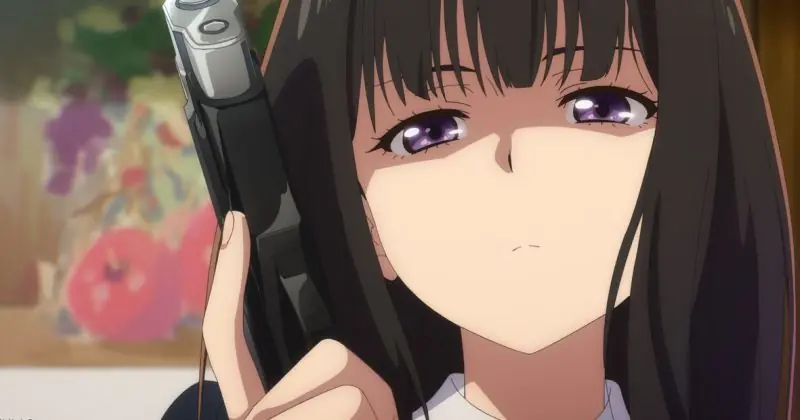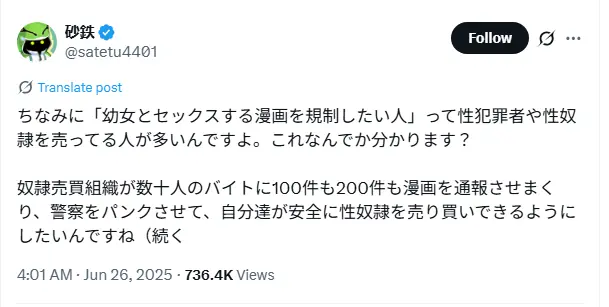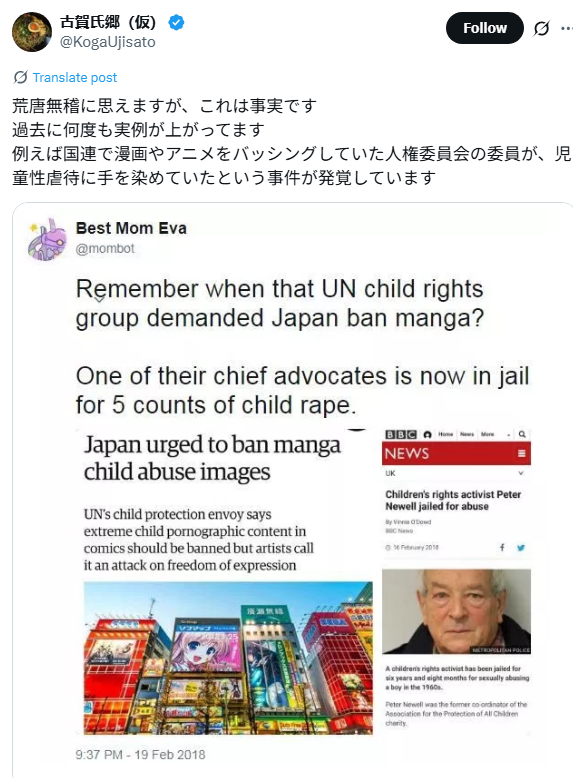Is Adult Manga Censorship A Cover for Crime?

A recent viral thread on Japanese Twitter is raising serious concerns about the ongoing push for adult manga censorship. With over 700,000 views and thousands of shares, user Satetu presents a theory that has sparked intense online debate: censorship isn’t about protecting society—it’s about protectin
Is Adult Manga Censorship A Cover for Crime?
According to Satetu, many of the people advocating for tighter restrictions on erotic manga featuring young-looking characters are, ironically, connected to sex trafficking rings or sexual crimes. These criminal groups, he claims, flood police with hundreds of reports about manga content to overwhelm law enforcement.
This, in turn, makes it harder for police to investigate actual trafficking cases, giving real-world abusers a better chance to continue their operations without interference.

Let’s read exactly what Satetu write?
Many of the people who want to regulate manga with sex scenes involving young girls are sex offenders or sex slave traffickers. Do you know why?
These human trafficking organizations employ dozens of temporary employees to report hundreds of manga to the police, causing the authorities to be overwhelmed. The goal is to paralyze the police so that they can continue to sell and buy sex slaves safely.
And if society starts to regulate erotic manga, what will happen?
Since the police will already be overwhelmed with false reports made by traffickers, even if your daughter is kidnapped and held captive as a sex slave, the response will be:
“We are busy with other cases, we can’t investigate right now.” And the case will be ignored.
You might think: “Then leave the manga alone!”
But the problem is that manga cannot be ignored.
Why? Because traffickers operate in an organized manner. They share methods with each other to force the police to act or even how to get a police officer who refuses to act punished or fired. In this way, the police are forced to act.
Meanwhile, ordinary citizens, like you, do not have this kind of knowledge to pressure the police.
In practice, there are several cases of sex slave trafficking in the world, but many are not investigated for fear of accusations of racism, for example. In other words, criminal organizations control the actions of the police, and with this, they are able to kidnap and enslave thousands of women.
Therefore, this current discussion about content regulation should be seen as follows: Organizations that traffic sex slaves want to silence the police and manipulate public opinion by deceiving naive people so that they defend these restrictions without realizing it.
If you want to regulate erotic manga, be aware that you are collaborating with organizations that buy and sell sex slaves.
End of thread.
Not Just a Theory?
While some dismissed his claims as far-fetched, others pointed to historical examples. User Koga Ujisato responded with a chilling reminder: Peter Newell, a UN advisor who criticized manga and anime, was later jailed for child sexual abuse.

Other person also highlights the case of Leland Yee, a U.S. lawmaker from the Democrat party who tried to ban violent video games and was later imprisoned for arms trafficking.
Let’s see other japanese reactions?
- These people either use the cause as an escape valve for their own guilt, or they try to divert attention from the investigation. Maybe both.
- I saw something similar in a work by Tono:
- “If you don’t want your crimes to be discovered, create an organization to control the investigation. If you set the course of the organization and there is no interference from third parties, no one will suspect you.”
- Some people have made fun of this, but it only shows that they live without thinking about anything.
- When anime and manga become popular, drug use and crime decrease. People stay entertained, they don’t leave their homes as much, or look for drugs. And this bothers the underworld, so there are those who support the movements against manga and anime out of interest.
- Unlike criminals, manga and anime don’t run away. There is always someone clearly responsible behind it, which makes the police’s job easier, so of course they will prefer to act against it.
- I know this story, which is why I don’t like those who defend censorship.
- I don’t know if this reasoning is 100% correct, but these cases do happen frequently.
- An interesting opinion.
- This is the scheme where, by increasing the number of targets and including those that are easier to investigate, the police end up diverting their focus and concentrating on those that guarantee more results with less effort.
Manga, Censorship, and Society
While this theory may not be universally accepted, it raises critical questions about censorship, freedom of expression, and how law enforcement chooses its battles. Is the public being manipulated by hidden interests? Are regulations on fantasy content helping real-world criminals?
For now, Satetu’s viral thread continues to circulate, fueling discussion on forums and social media. Whether you agree or not, one thing is clear: Japan’s fight over adult manga censorship is far from simple.



